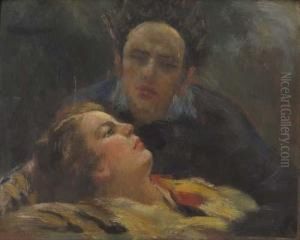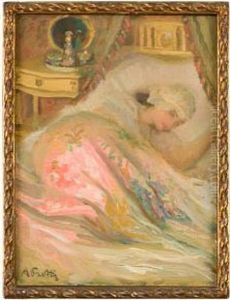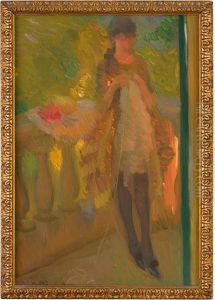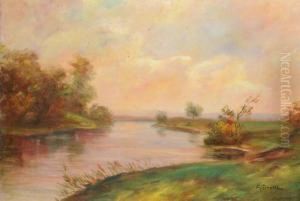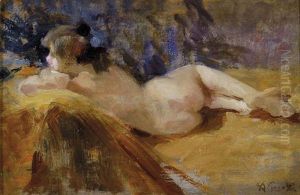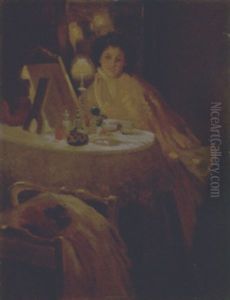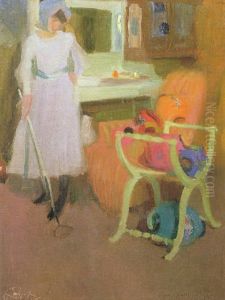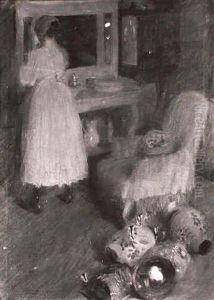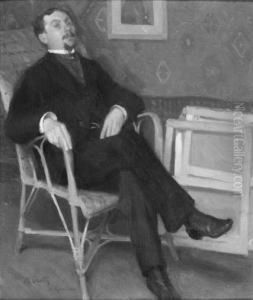Alfredo Protti Paintings
Alfredo Protti was an Italian painter, born in 1880 in Bologna, Italy. He is often associated with the Futurist movement, although he maintained a distinct personal style throughout his career. Protti's work was deeply influenced by the dynamic energy and modernity that characterized the early 20th century, and he sought to capture the essence of speed, technology, and industrial progress in his art, much like other Futurists of the time.
Protti's artistic journey began at the Academy of Fine Arts in Bologna, where he honed his skills and developed his early style. He was initially influenced by the Symbolist movement, which is evident in some of his early works that feature dreamlike imagery and a fascination with mysticism and the subconscious. However, as the Futurist movement gained momentum in Italy, Protti became captivated by its revolutionary ideas and began to incorporate its aesthetic into his work.
Despite his association with Futurism, Protti did not fully adhere to all of its tenets. He never signed any of the Futurist manifestos, and his art retained a certain degree of traditional structure even as he experimented with the fragmentation of form and the depiction of movement. Protti's paintings often portrayed urban landscapes, industrial scenes, and figures in motion, using bold colors and dynamic compositions to evoke the vibrancy and chaos of contemporary life.
Throughout his career, Alfredo Protti exhibited his work in various shows and galleries, contributing to the diffusion of Futurist ideas and aesthetics. His paintings are characterized by their energetic brushwork and a sense of immediacy, capturing the spirit of an era that was fascinated with the notions of change and the transcendence of traditional boundaries.
Alfredo Protti died in 1932, leaving behind a body of work that, while not as widely recognized as some of his contemporaries, offers a unique perspective on the Italian art scene of the early 20th century. His paintings can be seen as a bridge between Symbolism and Futurism, embodying the transition from one artistic epoch to another. Protti's work is held in various collections and continues to be studied by art historians interested in the complexities and nuances of the Futurist movement.
